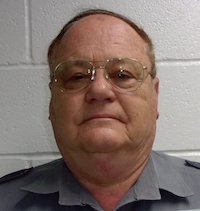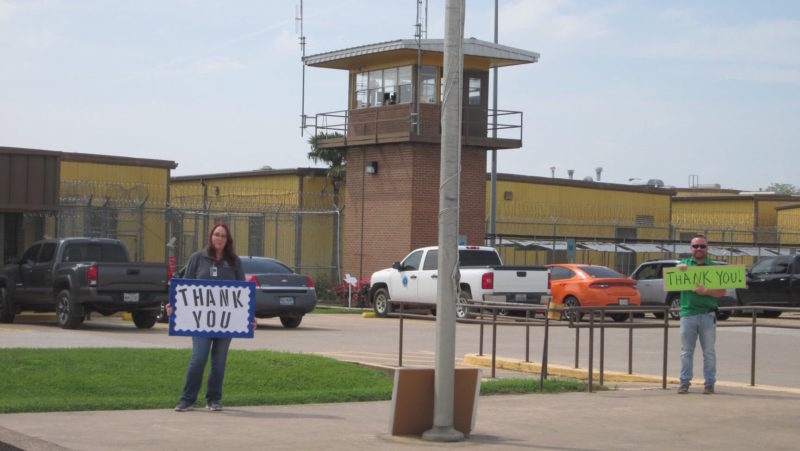An outbreak of the new coronavirus in Texas prisons is putting at risk some 39,000 prisoners throughout the state, with more than 1,200 prisoners and staff now testing positive for COVID-19.
That total includes only state prisons, not county jails, some of which have experienced their own outbreaks.
In an update on its website April 27, the Texas Department of Criminal Justice said, “In total there are 325 TDCJ employees, staff or contractors who have tested positive for COVID-19 and 909 offenders who have tested positive. 4 employees and 10 offenders are believed to have died as a result of COVID-19.”
There are an additional 12 deaths that are under investigation and pending preliminary autopsy results. Two other deaths that had been under investigation have been determined to be non-COVID-19 related after the return of preliminary autopsy reports, according to the update.

Nearly half of the state’s prison population, or 17,648 people, is on “medical restriction” because they may have had contact with someone with a positive or pending COVID-19 test. There are precautionary lockdowns at the following facilities:
Baten, Beto, Byrd, Carole Young, Clemens, Clements, Eastham, Ellis, Estelle, Fort Stockton, Garza West, Goree, Gurney, Hughes, Huntsville, Hutchins, Jester 1, Jordan, Leblanc, Lopez, Lynaugh, Michael, Middleton, Murray, Pack, Ramsey, Robertson, Sanchez, Scott, Skyview, Smith, Stiles, Stringfellow, Telford, Terrell, Woodman, and Wynne.
According to TDCJ, these precautionary lockdowns extend for 14 days from the date of a positive test. Those dates may be extended to the date of the most recent positive test.
Zero Cases in Travis County Prison
Offenders booked into jail in Austin have thus far escaped the virus. The Travis County jail has tested 32 inmates, 29 of whom tested negative, while three tests are still pending. Nine inmates are in quarantine as a precaution, and 201 are in isolation.
Quarantine is for inmates who have experienced virus-like illness symptoms, but about a third of the nine in quarantine “have no symptoms and are in quarantine because they either refused to answer CDC guideline questions or answered yes to all CDC guideline questions on intake,” according to Kristen Dark, senior public information officer for the Travis County Sheriff’s Office.

Isolation is for all newly booked inmates. They are held in single-occupancy cells for the first 10-14 days “as another layer of protection to keep COVID-19 from entering our general population,” Dark said. If an inmate doesn’t show symptoms within that 10-14 day time period, the person is introduced into the general jail population.
Some Texas counties have released hundreds of non-violent offenders since the outbreak began. Travis County’s jail population is down from 2,164 on March 16 to 1,670 on April 28.
However, as some counties contemplated the risk of an outbreak in their jails, the Texas Attorney General’s Office and Governor Greg Abbott acted to prevent the release of offenders with violent criminal records. This resulted in litigation that thus far the state has won.
Texas also was sued over failure to provide personal protective equipment to prisoners. On April 23 a federal judge in Houston ordered the State to provide hand sanitizer and face masks to inmates.
Texas Attorney General Ken Paxton appealed to the Fifth U.S. Circuit Court, arguing that the demands of prison inmates shouldn’t be prioritized over the safety of medical professionals, who also may face a shortage of personal protective equipment.
Paxton said, “It is absurd to prioritize inmates’ health concerns over those of hardworking medical professionals and demand unreasonable expansion of the resources and processes already implemented by the Texas Department of Criminal Justice (TDCJ). The district court has no authority to overrule Texas’s decisions about how to manage its scarce resources.”
The U.S. judge’s order said the masks can be cotton, provided they are laundered regularly.
